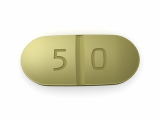Αλκοολισμός
- Στυτική Δυσλειτουργία
- Διαβήτης
- Βοηθήματα Ύπνου
- Αντιβιοτικά
- Πίεση Αίματος
- Άσθμα
- Antidepressiva
- Πιο Πουλημένα
- COVID-19
- Φροντίδα Δέρματος
- Γυναικεία Υγεία
- Αλκοολισμός
- Αντιφλεγμονώδες
- Απώλεια βάρους
- Αλλεργία
- Ανδρική Υγεία
- Πακέτα ED Ανδρών
- Χοληστερόλη
- Γαστρική Υγεία
- Αντιϊκά
- Νόσος Alzheimer
- Αντιβακτηριδιακό
- Αντιπαρασιτικό
- Ανακούφιση Πόνου
- Αρθρίτιδα
- Αντισύλληψη
- Διακοπή καπνίσματος
- Καρκίνος
- Καρδιαγγειακά
- Χαλαρωτικά Μυών
- Διουρητικά
- Κολύρια
- Γενική Υγεία
- Απώλεια Μαλλιών
- Ιός Ηπατίτιδας C (HCV)
- Βότανα
- HIV
- Κτηνιατρικά Φάρμακα
- Ορμόνες
- Βιταμίνες
- Νόσος του Πάρκινσον
- Ψυχική Ασθένεια
- Ναυτία Κίνησης
- Αντιμυκητιακά











































